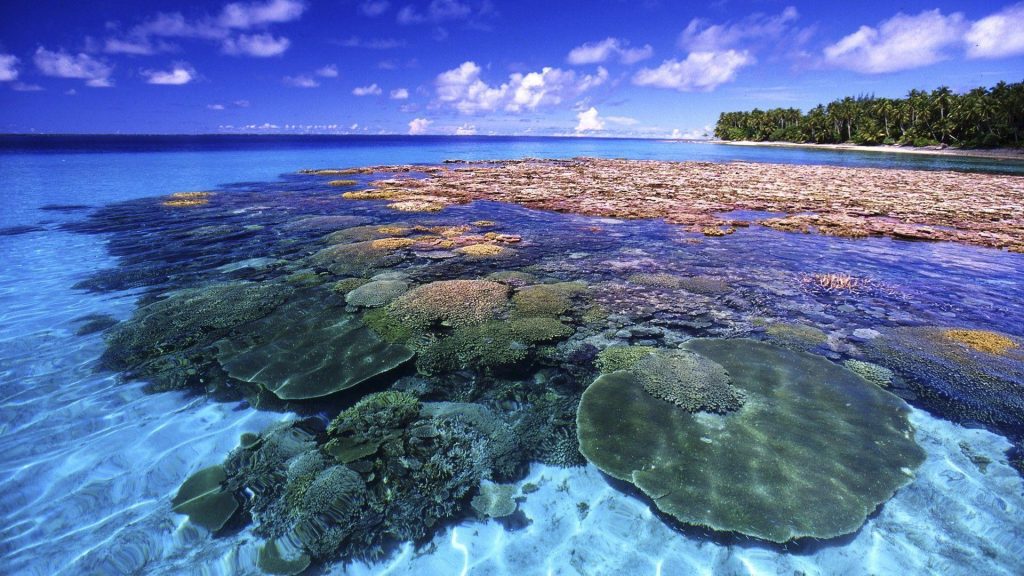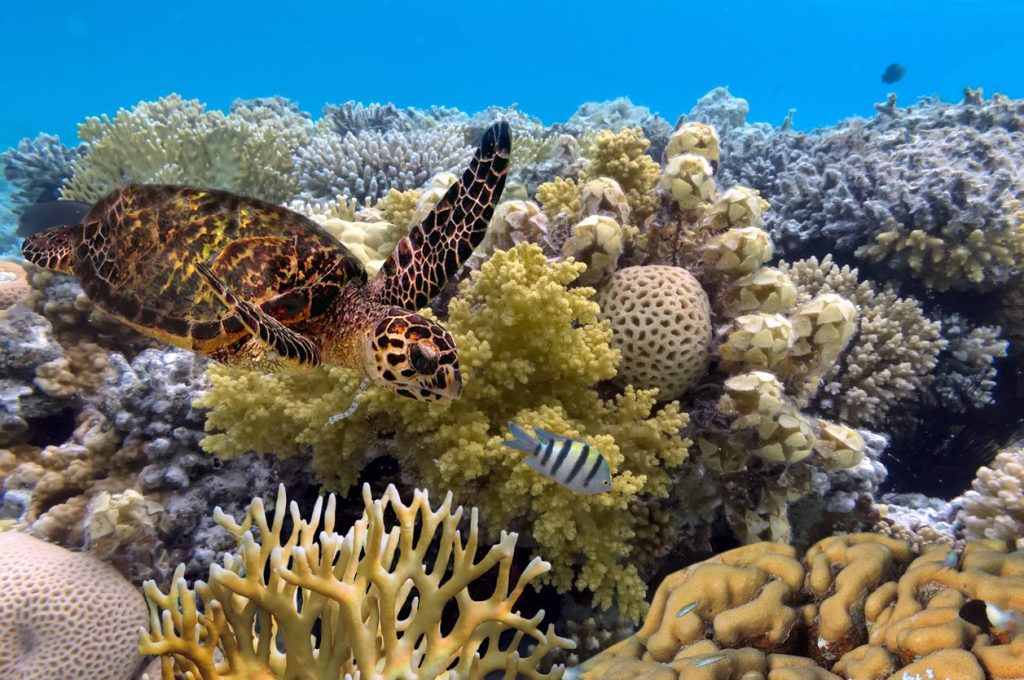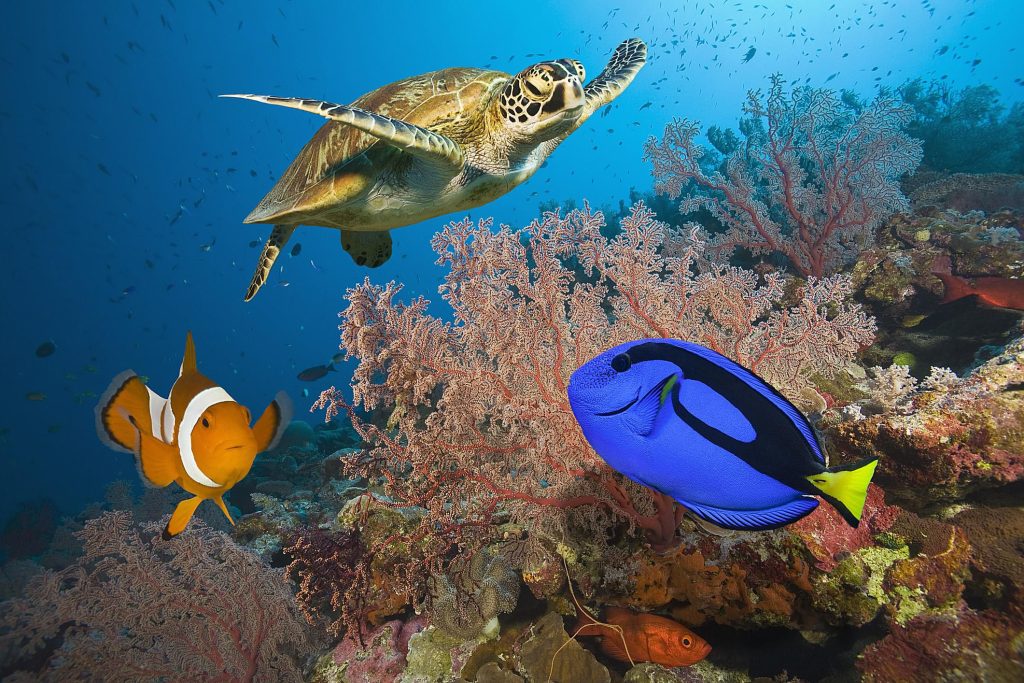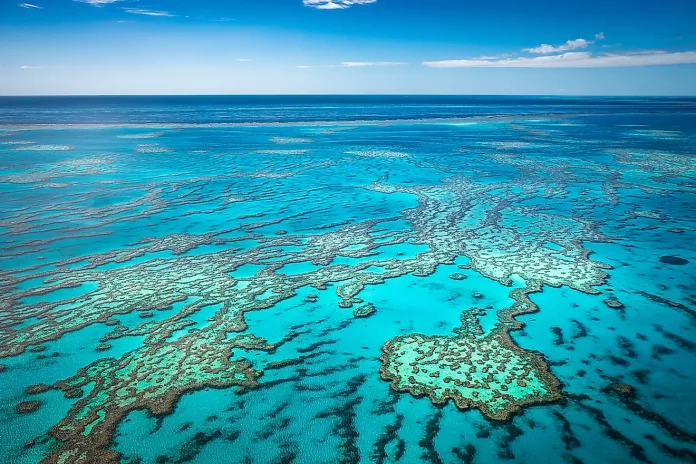Climate change-driven heat and cyclones have caused a large chunk of the Great Barrier Reef to drop in health, with some areas reporting the largest coral decline in 39 years.
The northern sections of the Great Barrier Reef have lost a large chunk of its coral as climate change, cyclones and floods continue to threaten disturbance to the mighty natural wonder.
Preliminary results from the Australian Institute of Marine Science (AIMS) in-water surveys found that 12 out 19 reefs surveyed along the tourist-populated central-northern coast between Lizard Island and Cardwell have seen serious coral decline in the past year.
Three-quarters of coral in the Lizard Island region have been lost due to climate change and cyclones
The survey results, although not-yet complete, indicate the northern parts of the reef have suffered multiple disturbances over the summer, which has impacted the coral and its surroundings,
More than a third of the hard coral cover, which is a measure of percentage of the live coral on the reef’s surface, was lost on the Cooktown-Lizard Island sector, the largest decline in hard coral cover in the 39 years AIMS has been conducting its Long Term Monitoring Program.
Reports indicate that one part of the Cooktown-Lizard Island reef lost almost three-quarters of its coral cover since the start of the year.

The Reef has suffered heat stress as a result of climate change and recent cyclones. Picture: Brendan Radke
One of the major contributors to this coral loss was heat stress driven by climate change, said AIMS leader Dr Mike Emslie.
Exposure to ongoing heat, pollution and low tides can result in coral expelling its algae, which turns the coral from a vibrant colour to white, better known as bleaching.
If heat continues to affect the area, the algae won’t return and the coral is left to die.
“The heat stress got so high in some areas that mortality is not a surprising outcome,” Dr Emslie said. Other stress-inducing factors, such as cyclones and pollution have also affected the health of the coral.

“Tropical Cyclones Jasper and Kirrily also exposed many to wave heights likely to cause damage to corals, generally greater than four metres,” he said.
The Reef has been subjected to severe heat stress since the start of the year.
Nearly a decade after the back-to-back mass bleaching of the Great Barrier Reef between 2016 and 2017, which collectively affected two-thirds of the Reef, fast-growing coral, Acropora, has been “partly responsible” for its recent recovery.
However, this coral was the most-affected by the recent heat stress, said Dr Emslie.
“This fast-growing coral has been partly responsible for the recent recovery on the Reef but is also susceptible to the kind of disturbance events we’ve seen this summer,” he said.
In contrast, branching Acropora and larger coral Porites were less affected, which “points to the variability and dynamics on coral reefs”.
Coral bleaching is quickly damaging the Great Barrier Reef. Picture: Brendan Radke.
Although results from the full assessment of the Marine Park won’t be available until mid-2025, the ongoing impact of bleaching on the Reef is a sign of what may come in the next few months.

“Its resilience is being severely tested,” said Dr Manuel Gonzalez Rivero.
It’s not just Australia feeling the brunt; the ongoing impact of climate change threatens “reefs around the world”.
“The 2024 mass bleaching event on the Reef, its fifth since 2016, forms part of the fourth global bleaching event impacting both the northern and southern hemispheres of the Atlantic, Pacific and Indian Oceans during 2023 and 2024, documented in more than 60 countries and territories worldwide,” Dr Rivero said.
𝐒𝐮𝐛𝐬𝐜𝐫𝐢𝐛𝐞, 𝐥𝐢𝐤𝐞, 𝐬𝐡𝐚𝐫𝐞, 𝐚𝐧𝐝 𝐜𝐨𝐦𝐦𝐞𝐧𝐭 𝐭𝐨 𝐬𝐭𝐚𝐲 𝐭𝐮𝐧𝐞𝐝 𝐭𝐨 𝐲𝐨𝐮𝐫 𝐟𝐚𝐯𝐨𝐫𝐢𝐭𝐞 𝐧𝐞𝐰𝐬 𝐜𝐡𝐚𝐧𝐧𝐞𝐥!
📌Web- https://serendibnews.com.au/
📌YouTube- https://www.youtube.com/@serendibnews
📌Facebook- https://web.facebook.com/serendibnews.com.au/
📌Instagram- https://www.instagram.com/serendibnewsau
📌TikTok- https://www.tiktok.com/@serendibnews
📌Twitter- https://x.com/SerendibNewsAu
📌LinkedIn- https://www.linkedin.com/in/serendib-news-au/
📌WhatsApp Group- https://tinyurl.com/2as67j52
📌WhatsApp Channel- https://tinyurl.com/bdf8f2jr


